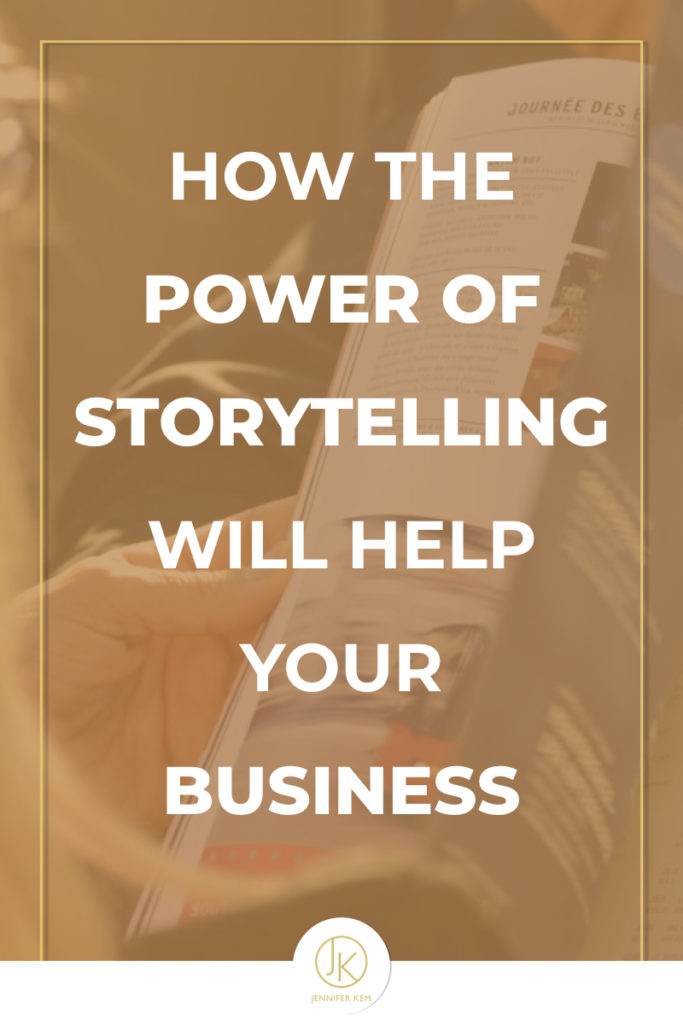How the Power of Storytelling Will Help Your Business
Remember all the stories that you read as a child? All the ones that began with ‘once upon a time’ or something similar along those lines?
Remember how they would make you feel?
Remember how scared you felt or how happy you became when something good happened to your favorite characters?
The bottom line is these stories made you feel or react a certain way because you built a connection with a character or two.
But don’t think that stories are just for children.
Even today, people like you and I still appreciate a well-written story. Whether it’s a novel by Stephen King or the Harry Potter series, stories continue to remain in our lives wherever we go, including in business.
It’s called brand storytelling.
At the end of the day, people are selfish. Now, don’t think this is such a terrible thing. Rather, it’s just a part of who we are.
If you don’t believe me, reflect on a few of these things:
-Have you ever gotten frustrated with someone/yourself because things didn’t go the way you wanted it to?
-Have you decided not to post a photo because you didn’t like the way you looked?
If you’ve ever done any of these things, it’s because you’re human. It’s a part of our existence.
Now, here’s how you can use this in running your business: learn to write a story your customers will love.
It’s been proven over and over again, but we tend to like certain things we can relate to vs. those we can’t relate to.
Think of all the different commercials you’ve seen and think about the ones you liked. Was it funny? Interesting? What made it memorable for you?
There’s a term for this. It’s called marketing.
Defined as understanding other humans and what motivates them to go from point A to point B, this is what makes brand storytelling a valuable tool.
Since the beginning of time, stories were one of the ways people would communicate with each other. In the business world, it still works the same way.
After all, no one likes being hit with a sales pitch right away.
For example, only 23% of consumers trust any ads on tv and 82% of consumers will ignore a brand if they feel like it’s being too intrusive, aka being too sales-y.
In addition, only one in five consumers trust anything they see in magazines or on radio and 79% of people want to know that the advertiser or the brand is authentic or genuine.
It’s easy to see why, too.
Not only do we live in an overstimulated society, we have a tendency to ignore unnecessary noise as well, meaning that we simply don’t care about things that don’t resonate with us or who don’t care about us.
That’s why having a story (or two), will benefit your business, both short and long-term.
Think of it this way: brand storytelling is the cement that holds your brick walls together.
Not only will having a story tell your customers that you’re genuinely interested in them, you’re also building a relationship, too.
And it’s usually found in the about section on their website.
For example, Starbucks’ story (found in the Responsibility tab) is to not only serve delicious coffee, but to do it in a way that’s ethical and sustainable while creating opportunities through education, training, and employment.
Pretty interesting, right?
Individual brands like myself tend to share our life story in order to reach our customers.
In my tribe, many call me Jenerosity because one of my brand stories is to help budding entrepreneurs grow their own business, just like I’m doing now.
Brand storytelling is a way for you to connect dots with your ideal prospects. People wanna hear stories, but the real question is, will they read yours?
Build your brand and your business, with all of
the fun and none of the fluff.










